SCHOFIELD BARRACKS, Hawaii - Japan's typical visitor to Hawaii will relax in the ocean and lay on the sands of Waikiki Beach, but two recent visitors were instead drawn to the water and dirt of Lake Wilson in Wahiawa.
Capt. Justin Sprague and 1st Lt. Jaree Johnson traveled from Camp Zama, Japan to Schofield Barracks, Hawaii to teach the finer points of Deployment Occupational and Environmental Health Surveillance to deploying Soldiers of 2nd Brigade Combat Team, 25th Infantry Division. After a couple days of classroom training, Sprague took his students on a field trip to nearby Lake Wilson, also known as Wahiawa Reservoir, to collect samples of water, soil and insects, just as they will do in Iraq when the brigade deploys this summer.
"A preventive medicine Soldier is expected to be a jack-of-all-trades," said Sprague, head of field preventive medicine at Public Health Region Pacific. "We work in the areas of air and water quality, industrial hygiene, entomology, epidemiology, pest management, and a wide array of areas that can affect the health of our Soldiers."
Sprague and Johnson observed technique and offered advice to 2nd Lt. Jennifer Foreman, the environmental science officer of 225th Bde. Support Battalion, as she scooped dirt from the high ground above the lake, and to Spc. Kellon Belfon, a preventive medicine specialist from the same unit, as he bottled water samples along the shore. Foreman and Belfon will provide preventative medicine support to all units across the 'Warrior' Bde. in Iraq. First Lt. Karolyn Braun, environmental science officer of 29th Bde. Support Bn., Hawaii Army National Guard, also took part in the training.
Anyone watching the team at the lake, Foreman half-joked, would just say they're "playing in the dirt." The work of preventive medicine teams, however, is serious business, keeping Soldiers in the fight by detecting malaria, leshmaniasis and a host of other illness that can quickly spread through a fighting force.
"Every Soldier in the unit performs a vital function, and we need every single Soldier to be fit and ready to fight," said Sprague.
Data collected in the field can also help Soldiers after the fight. According to Foreman, a soil sample contains the industrial exposures to land, such as chemicals from textile and oil refineries.
"This is useful information as it helps to provide answers to potential dangers of our foreign environments," explained Foremen, noting a sample of the environment can point to a cause "when our returning Soldiers, and sometimes family members, are diagnosed with unfamiliar illnesses and diseases."
After filling a large cooler full of water bottles and soil packets, the trainers supervised the team setting up a 'light trap' to capture mosquitoes - another environmental sample to study back at a lab to identify potential health hazards.
Technical assistance visits like this one gives subject-matter experts the opportunity to share their knowledge with junior team members. Sprague said his students were very receptive to the information.
"They were able to take the material from the classroom and put it into action in the field. I am confident that they have the knowledge and resources to perform admirably in Iraq, Afghanistan, or most any environment around the world," said Sprague.
A work day at the lake won't beat out a relaxing day at the beach for a Hawaiian memory, but Sprague did return to Japan knowing his students will deploy with the skills and tools to prevent disease and non-battle injuries.
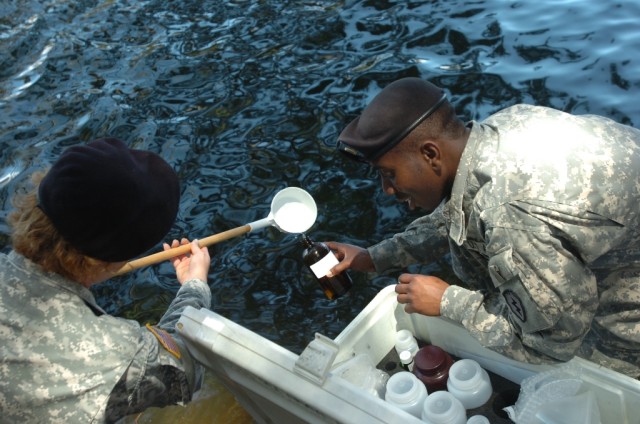
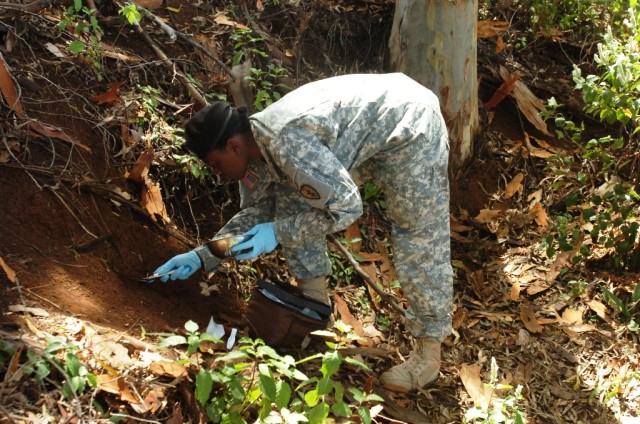
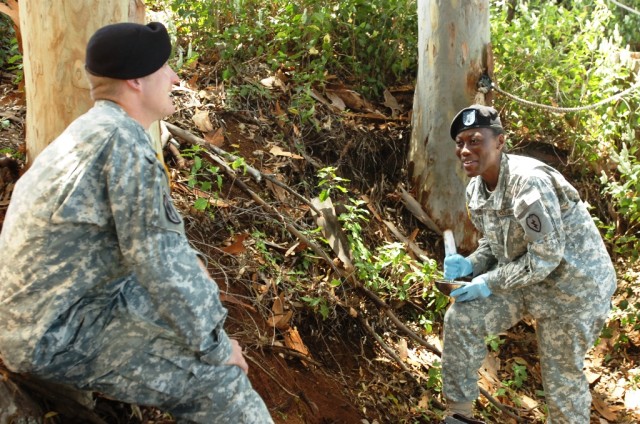
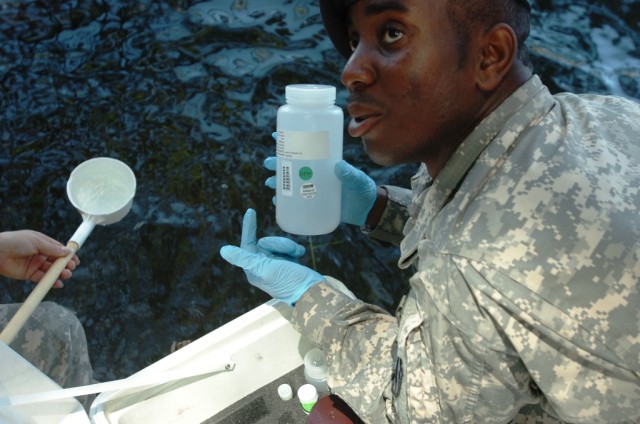
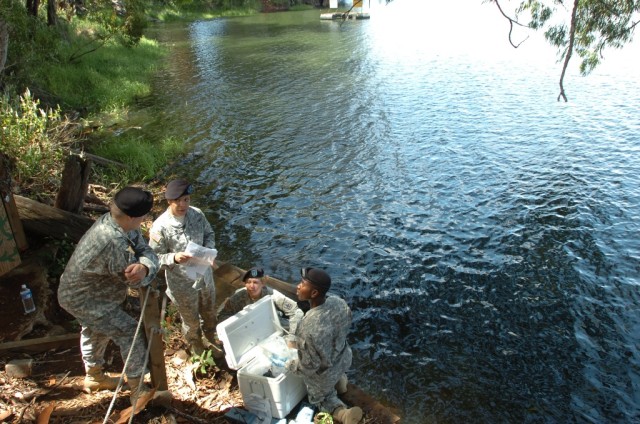
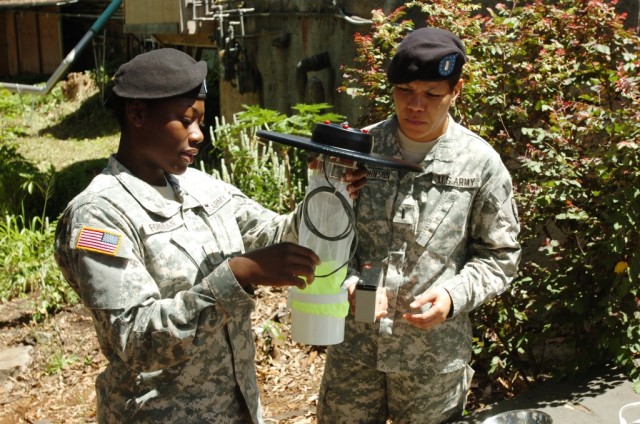
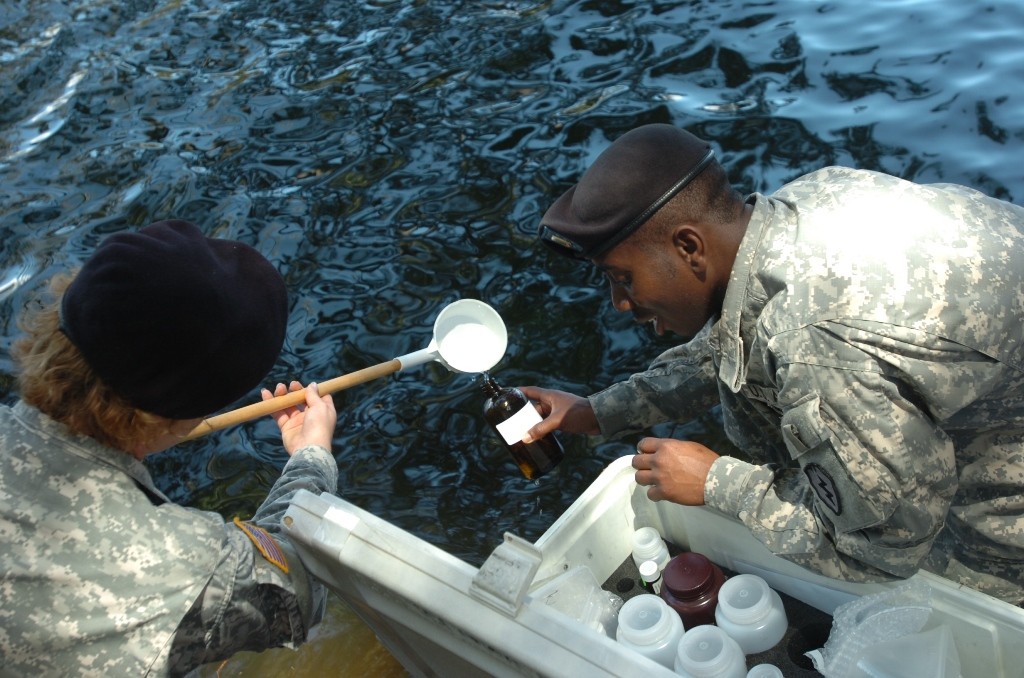
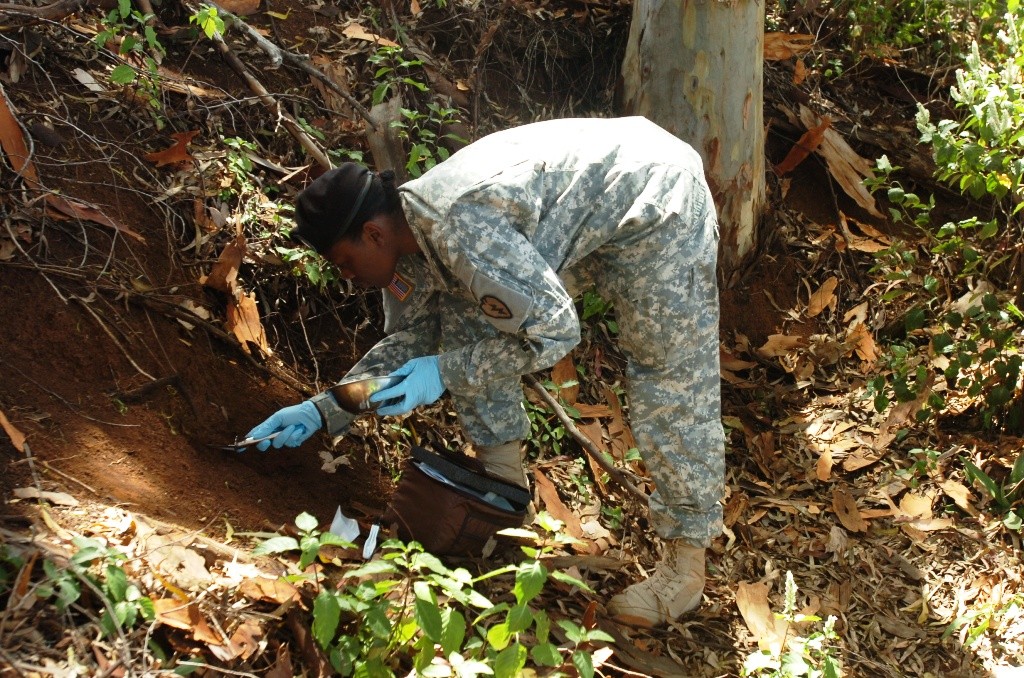
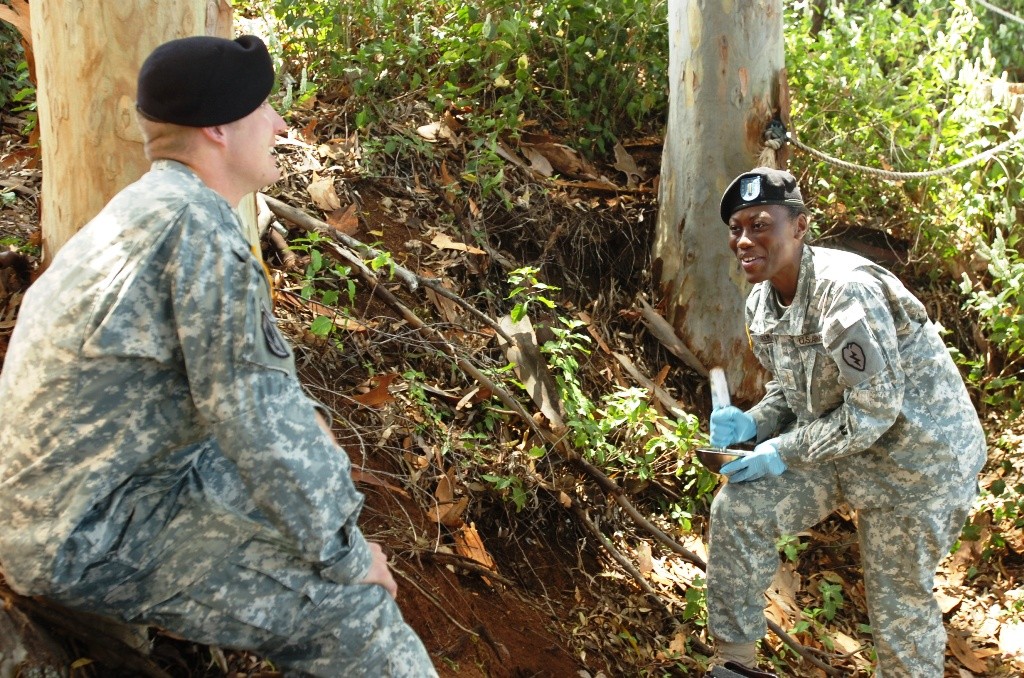
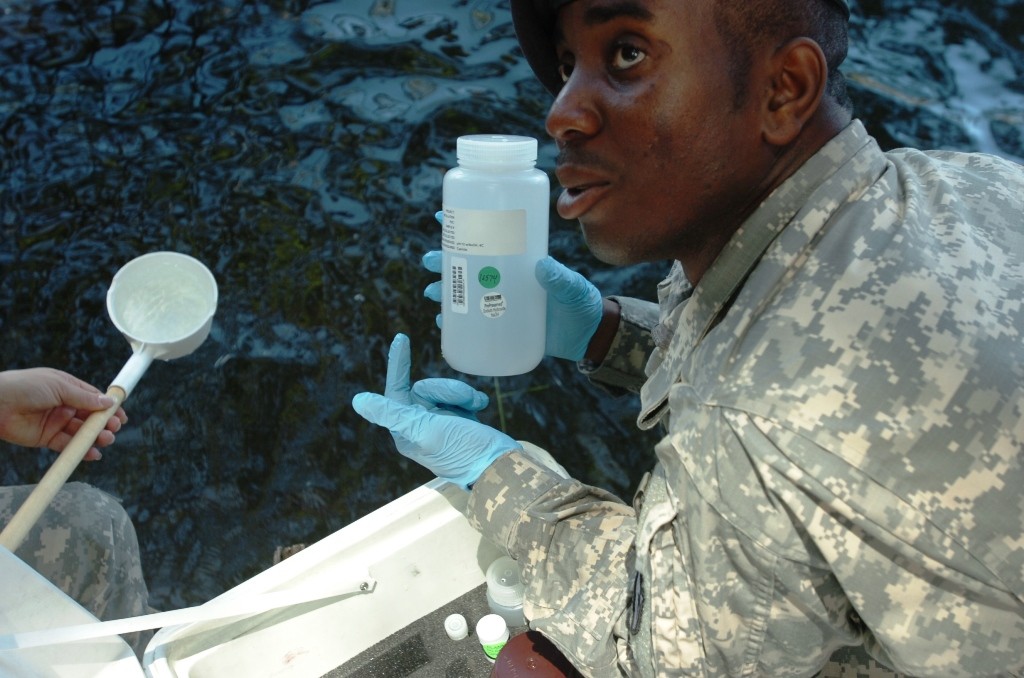
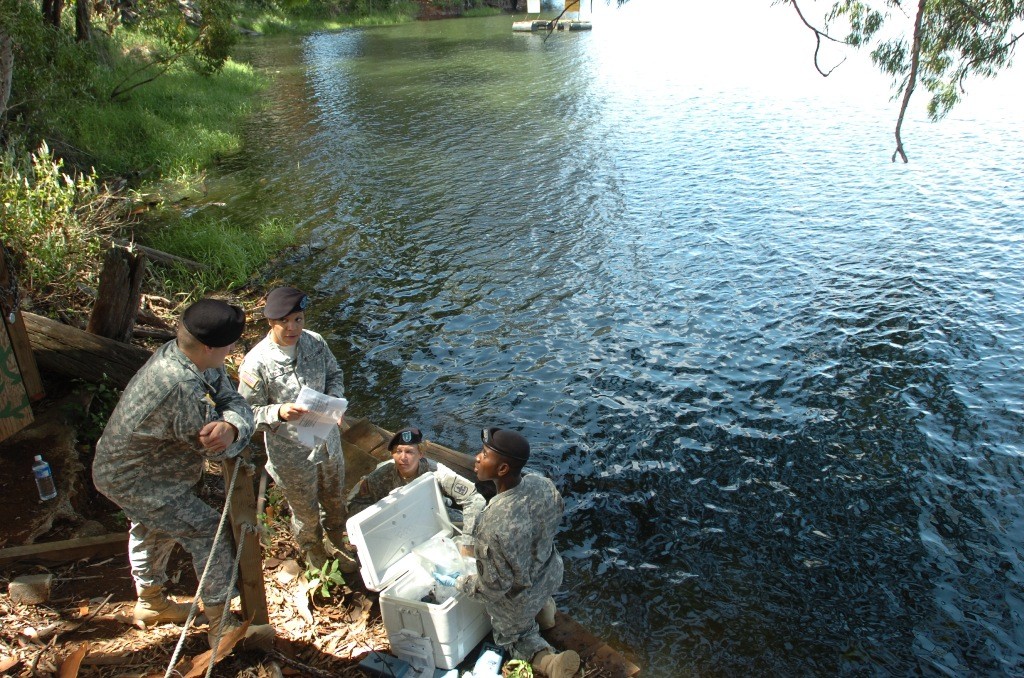
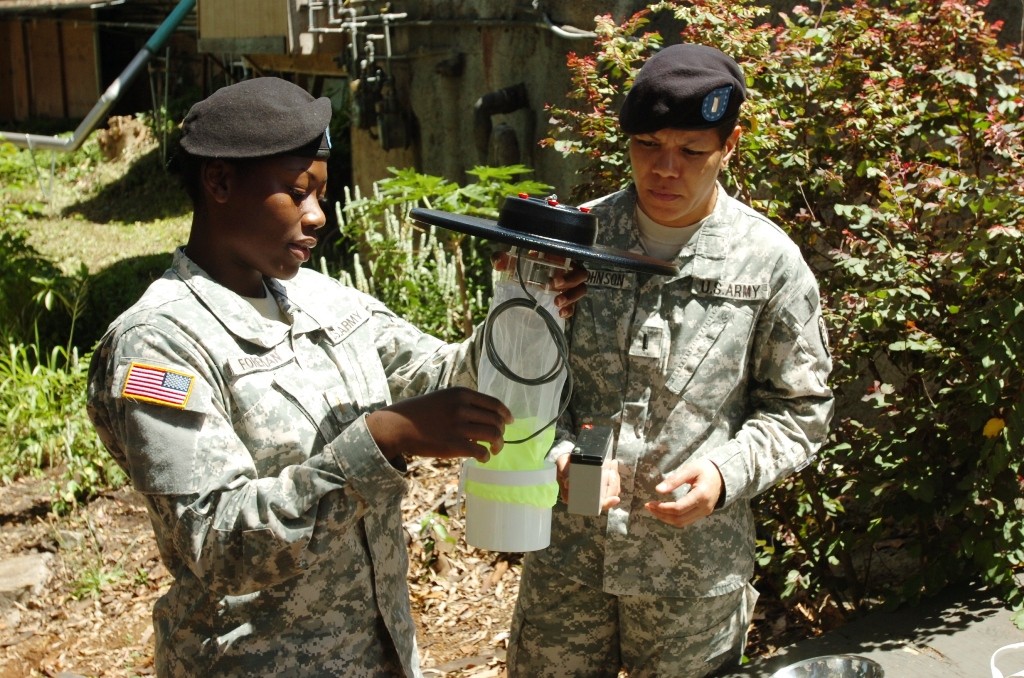
Social Sharing